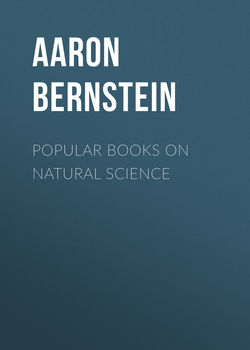Читать книгу Popular Books on Natural Science - Bernstein Aaron David - Страница 11
PART III.
NUTRITION
CHAPTER VIII.
FOOD
ОглавлениеFrom what has been said, it must appear evident that only such dishes make good food as contain the same constituents as the blood.
To have these constituents, food must contain salt, fat, and sugar; all these ingredients must, of course, be in a certain proportion.
That water is essential for the support and renewal of the body is clear to every one. The flesh we eat, contains nearly eighty per cent. of water, and yet a man must die, if he were to eat nothing but meat and to have no water, for the reason that the eighty per cent. of water he takes in would by no means be sufficient to form all the liquids necessary for the human body.
The albumen that we eat, forms in the blood chiefly the substances composing the muscular part of the flesh. But it is an error to suppose, that therefore it is absolutely necessary to eat eggs – the white of an egg is nearly pure albumen – because the caseine (cheese) contains precisely the same ingredients as the albumen; for we have seen before, and our readers are doubtless aware of it, that the mother's milk contains caseine, while it is entirely free of albumen. Hence, he who eats plenty of caseine, as do shepherds in Switzerland, for example, scarcely needs any meat. But besides caseine there is another element, viz., the vegetable albumen called gluten, which contains albuminous matter; so do all glutinous plants. Peas, beans, and lentils in particular form food productive of flesh.
The salts that must be given to the blood, do not only consist in the common kitchen-salt. By the expression "Salts" are meant various combinations of substances which are usually not considered articles of food, for example, the combinations of phosphorus, iron, etc., but are not visible to the eye. They help to form bones, teeth, nails, cartilages, and hair.
The fat which we take, appears to many people to be a very important part of our food, and they believe that by eating much fat, one may become fat. But this is not correct. Ferocious animals that live only on meat and fat, do not get fat; while herbivorous animals fatten excessively, if provided with good mast, consisting of course but of plants. Yet fat is, for all this, by no means superfluous to our body. Man needs it, because it is the fat which chiefly supports his respiration. But the fat that is needed for the body, is formed by man himself; so that but little of it need be eaten, and that little only for the purpose of helping to form new fat from sugar.
It is therefore best to consider fat and sugar as food belonging together; for the fat is formed in the body from sugar, and the small quantity of fat which we take daily is only to promote the transformation of sugar into fat.
But let no one believe that one must needs actually eat sugar; no, every food that contains starch supplies the place of sugar very well, as starch is changed, when in the body, first to sugar and then to fat. The potato contains starch and serves its purpose well; it is necessary, however, to put butter with it in order that the starch and sugar formed from the potato in the stomach, may be easily converted into fat.
An excellent article of food is bread, for it contains nearly all the elements of nutrition. It contains vegetable albumen, and therefore is converted into flesh. It has nearly all the salts that are essential to the body; moreover, it contains starch from which fat is produced. Therefore, by the mere addition of a little butter in order to make the formation of fat easier, and by drinking water besides, the human body is able to exist. On the other hand, the potato, if taken alone, is an insufficient means of nutrition. Neither would meat or albumen, if taken alone, be able to preserve life.
Various experiments have been tried with animals, and a great deal of information about the best means of feeding the body has been collected. In order to investigate the effect of the nutritive qualities of food, inquiries have been made especially at military establishments, such as barracks, etc.
